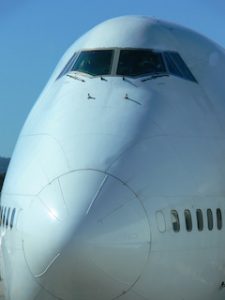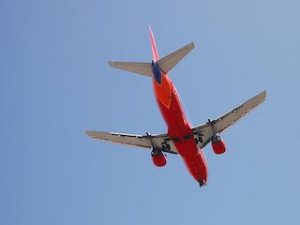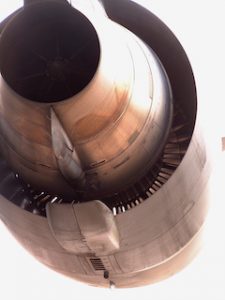Stock Market Stocks For Retired Pilots
 For retired airline pilots, the transition from a high-octane, fast-paced career to a quieter lifestyle can come with its own set of challenges. While many pilots may be ready to step away from the cockpit, they often find themselves seeking new avenues for intellectual stimulation, financial growth, and personal fulfillment. One such opportunity that has gained traction among retired pilots is studying and investing in airline stocks. By leveraging their deep knowledge of the aviation industry, retired pilots are in a unique position to make informed decisions in the stock market. This article explores how retired pilots can earn a living by investing in airline stocks, offering a strategic approach to navigating the stock market and securing a steady income stream.
For retired airline pilots, the transition from a high-octane, fast-paced career to a quieter lifestyle can come with its own set of challenges. While many pilots may be ready to step away from the cockpit, they often find themselves seeking new avenues for intellectual stimulation, financial growth, and personal fulfillment. One such opportunity that has gained traction among retired pilots is studying and investing in airline stocks. By leveraging their deep knowledge of the aviation industry, retired pilots are in a unique position to make informed decisions in the stock market. This article explores how retired pilots can earn a living by investing in airline stocks, offering a strategic approach to navigating the stock market and securing a steady income stream.
Role of airline stock market stocks
The stock market serves as a platform where companies list shares of their ownership, allowing individual investors to buy and sell these shares. Stock market stocks represent a fractional ownership in a company, and the price of a stock fluctuates based on supply and demand, company performance, and market conditions. Investing in stocks offers the potential for capital appreciation, dividends, or both, depending on the stock and the company’s financial health.
Airline stocks are shares of publicly traded airline companies that can be purchased on major stock exchanges such as the New York stock exchange or NASDAQ. These stocks are a popular choice for investors due to the airline industry’s critical role in the global economy and the opportunities it presents for growth and income. For retired pilots, investing in airline stocks provides an opportunity to use their industry knowledge and expertise to navigate the complexities of the market and create a viable income stream post-retirement.
Advantage of industry knowledge
Retired airline pilots have an inherent advantage when it comes to understanding the dynamics of the airline industry. This advantage stems from their direct experience in aviation operations, regulations, and business practices. They are familiar with how airlines function, what drives profitability, and how the various macroeconomic factors affect the sector.
Pilots are also acutely aware of the key performance indicators that influence an airline’s success, such as:
-
- Load factor: The percentage of seats filled on a flight, which indicates demand and operational efficiency.
- Revenue per available seat mile: A measure of how efficiently an airline generates revenue from its seating capacity.
- Fuel costs: As one of the highest operational expenses for airlines, fuel prices can significantly affect profitability.
- Labor costs: Airlines must manage complex labor agreements with pilots, flight attendants, and ground staff, which can influence cost structures.
- Regulatory factors: Airlines operate in a heavily regulated environment, and changes in regulations can impact operational costs and market conditions.
This insider knowledge gives retired pilots a unique perspective when evaluating the financial health of airlines. Unlike the average investor who may lack this expertise, retired pilots can leverage their experience to make better-informed decisions, increasing their chances of achieving a profitable outcome in the stock market.
Learning to invest in airline stocks
While retired pilots have a strong foundation in aviation, investing in stocks requires a different skill set. Recognise that the stock market involves a learning curve, and a sound understanding of investing principles is necessary for success. Here is how retired pilots can start studying and investing in airline stocks:
1) Educate yourself about the stock market
Investing in airline stocks starts with a solid understanding of the stock market. Retired pilots should begin by learning the basics of how the market works. This includes understanding concepts like stock valuation, risk management, diversification, and portfolio allocation.
There are numerous online resources, books, and courses that can help new investors get up to speed with stock market investing. Websites like Investopedia, as well as courses from platforms like Coursera or Udemy, can provide valuable lessons on investing fundamentals.
Pilots can also learn about specific metrics used to evaluate stocks, such as price-to-earnings ratio, earnings per share, and dividend yield. These metrics help investors gauge whether a stock is overvalued or undervalued, providing insights into its potential for growth.
2) Follow airline industry trends
Once basic investing principles are understood, retired pilots should focus their attention on the airline industry. They should monitor the health of the industry as a whole, paying attention to factors such as:
-
- Global economic conditions: A thriving global economy often leads to higher demand for air travel, which benefits airlines. Economic downturns, however, can reduce travel demand, affecting airline profitability.
- Fuel price fluctuations: The cost of jet fuel can make or break an airline’s profit margins. Pilots are uniquely suited to understand how fuel prices impact airline operations, so they should stay informed about global fuel price trends.
- Technological advancements: Innovations in aircraft technology, fuel efficiency, and digital transformation (like mobile booking and customer service platforms) can impact the competitive landscape of the airline industry.
- Environmental regulations: Airlines are under increasing pressure to reduce their carbon footprint, which may lead to higher operating costs. Understanding these regulatory trends is key to assessing an airline’s long-term financial stability.
Staying on top of these industry trends allows retired pilots to make more informed investment decisions and react to changes in market conditions faster than other investors.
3) Choose the right airline stocks
With a broad understanding of the stock market and the airline industry, retired pilots can begin evaluating specific airline stocks. The goal is to identify stocks that align with their financial objectives and risk tolerance. Some of the most prominent airline stocks to consider include:
-
- Delta airlines: The largest and most well-known U.S. carrier, Delta has a reputation for strong management, operational efficiency, and an extensive network of domestic and international routes.
- American airlines: As the world’s largest airline, American Airlines offers investors exposure to both domestic and international markets.
- Southwest airlines: Known for its low-cost, no-frills business model, Southwest offers steady growth prospects and a strong market presence in the U.S.
- JetBlue airways: With a focus on affordable pricing and high-quality customer service, JetBlue has carved out a niche in the competitive airline market.
Retired pilots should also consider factors such as financial health, debt levels, and management quality when evaluating airline stocks. They should avoid companies with excessive debt or poor leadership, as these can increase the risk of investment.
4) Diversify your portfolio
While focusing on airline stocks is an attractive option for retired pilots, diversification is key to managing risk. A diversified portfolio reduces the impact of volatility in any one sector and provides more stability in the long run.
Retired pilots should consider spreading their investments across various sectors of the economy, such as technology, healthcare, consumer goods, and energy, to balance out potential risks. They may also choose to invest in index funds or exchange-traded funds that track the performance of the broader stock market or specific industries, including airlines. These investment vehicles provide instant diversification, which can help mitigate risk.
Additionally, pilots should pay attention to dividend-paying stocks. Many established airlines pay regular dividends, providing a steady income stream, which is especially beneficial for retired investors looking for passive income.
5) Monitor and adjust your investments
The stock market is dynamic, and airline stocks, like any other sector, are subject to fluctuations. Retired pilots should monitor their investments regularly, staying informed about changes in the airline industry, shifts in the broader market, and any relevant news that may affect their stocks.
Using stock tracking tools, such as apps or online brokerage platforms, will help pilots stay updated on their portfolio’s performance. Additionally, retired pilots should consider working with a financial advisor who specialises in stocks and retirement planning. Financial advisors can help fine-tune investment strategies, manage risks, and ensure that investments align with long-term financial goals.
Rebalance the portfolio periodically. As certain stocks outperform or underperform, retired pilots may need to adjust their holdings to ensure they maintain a well-diversified and strategically positioned portfolio.
Earning a Living with Airline Stocks: The Income Potential
The potential to earn a living from investing in airline stocks largely depends on two factors: capital appreciation and dividends.
1) Capital appreciation
Capital appreciation occurs when the value of a stock increases over time. Retired pilots who carefully select undervalued airline stocks with strong growth potential can see their investments appreciate, offering significant returns. This can be especially lucrative for long-term investors who hold stocks during periods of market growth and industry expansion.
However, airline stocks can be volatile, particularly during economic downturns or periods of instability. While these fluctuations provide opportunities for gains, they also carry the risk of losses, so careful research and a well-structured investment strategy are crucial.
2) Dividend income
Many large, stable airlines pay dividends to their shareholders. Dividends are regular payments made to investors from a company’s profits, typically on a quarterly basis. For retired pilots, dividend income can offer a reliable and consistent source of passive income, which can be especially valuable during retirement.
By investing in airlines with solid dividend histories, retired pilots can create a stream of passive income that can supplement other sources of retirement income, such as pensions or Social Security benefits.
Keep earning
For retired pilots, studying and investing in airline stocks offers an excellent opportunity to earn a living while leveraging their industry knowledge. By understanding the stock market, following industry trends, selecting the right stocks, and maintaining a diversified portfolio, retired pilots can navigate the complexities of stock investing and build a profitable investment strategy.
While investing in airline stocks offers the potential for both capital appreciation and passive income through dividends, approach the stock market with caution, a long-term mindset, and an understanding of the risks involved. With the right education, strategy, and market knowledge, retired pilots can not only maintain their financial independence but also enjoy a fulfilling post-career endeavor in the world of investing.










